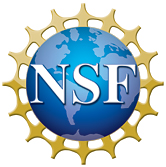2019 Combustion Early Career Investigator Workshop
A 1.5-day workshop for early career faculty and researchers in combustion and fire science will be held 23–24 March 2019 in Pasadena, California, immediately prior to the 11th US National Combustion Meeting.
This workshop will bring together junior faculty doing research in combustion and fire, and related fields, to discuss cultural issues facing the community. Anyone interested in participating needs to apply; see Registration for details.
All participants in the workshop are expected to comply with its Code of Conduct, both during the workshop and in any communications associated with it before, during, or after the event itself.
Motivation
This workshop follows from the 2017 NSF-funded workshop entitled “Sustaining the combustion research community: ensuring the field doesn’t burn out” (award #1733968), which was held in April 2017 ahead of the US National Combustion Meeting in College Park, MD. The goal of the original workshop was to learn about and discuss future challenges in the field of combustion from the perspective of early career researchers. Several topics were discussed, including topics related to people in the field (attracting and retaining a more diverse community, public engagement, hostile and confrontational climate, improving educational outcomes) and research in the field (open publishing, multi-disciplinary collaboration, balancing fundamental and applied research). Each of these topic areas produced a series of action items, many of which have been implemented, or at least begun, in the year and a half since the workshop.
This workshop resulted in several significant impacts on early-career researchers. Examples include:
- Establishment of an early-career advisory board reporting to the executive committee of the Combustion Institute, whose membership includes a number of participants of the workshop (Michael Mueller – 2 year term, Jacqueline O’Connor – 2 year term, Nicole Labbe – 3 year term, Patton Allison – 3 year term).
- Establishment of an early-career advisory board reporting to the US Section Board, whose members include participants of the workshop (Perrine Pepiot – chair, Michael Mueller, Erica Belmont, Jacqueline O’Connor, Kyle Niemeyer).
- Public announcement of code of ethics by Prof. Arnaud Trouvé at opening of the US National Meeting at the behest of members of the workshop. Similar announcements were made at both the Eastern and Western states meetings in Spring 2018.
- Nomination and subsequent election of early-career researchers onto Combustion Institute section boards, resulting in the following numbers of current board members: 8 in Western States, 2 in Central States, and 7 in Eastern States.
- Development of diversity and inclusion activities within the US sections.
- Workshops focusing on mentoring, diversity, and inclusion at both the Eastern and Western States Section meetings in Spring 2018.
- Several research collaborations have arisen from networking opportunities at the workshop, including coordinated CAREER proposals (Jacqueline O’Connor and Richard West) and others.
- Addition of new Education and Outreach colloquia in combustion-related meetings, including a WiPP track at the Combustion Symposium.
Additionally, the workshop created a close-knit community of early-career combustion researchers who have kept in touch since the event. Several scientific collaborations and friendships were forged at this meeting, which will undoubtedly enhance the quality of the field going forward.
Given the significant positive impacts of the first workshop, we want to continue to build momentum and create a framework for establishing a recurring workshop, tied with the biennial US National Meeting, to continue to support early-career researchers and academics in the US. While real progress has been made since the last workshop, there are still a number of areas where the community could improve further, and we believe the early-career members of the combustion community can contribute significantly. The specific goal of this workshop is to further develop four topics that the early-career community agreed were high-priority items.
Acknowledgements
We thank the National Science Foundation for supporting this workshop under grant CBET-1901570.
